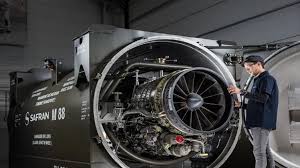NEW DELHI: With India targeting to produce approximately 500 fighter jets on its own over the next two decades, a reliable supply of engines would be the key to this ambition.
The future war-fighting edge of the Indian Air Force and the air-combat ability of the Indian Navy depends on the production of these 500 jets, varying in strength, weapons and range. India’s plan over the next two decades includes making 180 Tejas Mark-1A, 108 Tejas Mark-2 jets, followed by 126 of the Advanced Medium Combat Aircraft (AMCA) and 100 jets for the Navy called the Twin-Engine Deck-Based Fighters (TEDBF).
The IAF continues to operate with fewer fighter jet squadrons than mandated. At present, it has 31 squadrons (16-18 planes each) of jets against a mandated need of 42 squadrons to tackle a collusive two-front threat against Pakistan and China.
Over the next one year, the two squadrons of the Soviet-era MiG 21 fighter jets will retire from the IAF. The Jaguar, MiG-29 and Mirage 2000 jet fleets all inducted in phases during the 1980s are slated to retire in batches beyond 2029-30. These four types of jets are about 250 in number and are presently operating on an extended life cycle. The issue of engines has heated up discussion in strategic circles after US company General Electric (GE) failed to supply engines for Tejas Mark-1A jets being manufactured by Hindustan Aeronautics Limited (HAL). In turn, HAL has failed to start deliveries of the jets to the IAF.
Media had reported that HAL, contracted by the Defence Ministry to supply the first lot of 83 Tejas Mark-1A jets at a cost of Rs 48,000 crore, has not delivered even one plane. The reason it does not have engines the GE was to supply under a $716-million contract inked in 2021. For future, India is looking at two options. One is a long-term agreement with GE to make an engine in India, while the other is with French company Safran. Negotiations are on with both.


